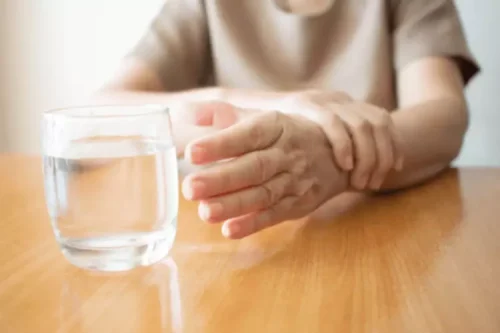admin
No description.Please update your profile.

Additionally, the chaos caused by alcoholism can alter family relationships, leading to breakdowns in trust and increased tensions. While family members may attempt to shield one another from these challenges, understanding the consequences of alcohol use and seeking treatment is essential. Resources and support systems exist to help families cope, enabling them to address not only the addiction but also its far-reaching effects on familial bonds. To mitigate these challenges, families must prioritize treatment and emotional support, recognizing the need for collective healing and recovery from the trauma caused by alcohol dependency.

Constant conflict or neglect can severely impact children of parents with alcohol addiction. They may experience loneliness, depression, guilt, anxiety, anger issues and an inability to trust others. The impact of alcohol on relationships is widespread and can affect every single relationship a person is a part of. According to the National Institutes of Health (NIH), the three most frequently comorbid disorders with alcoholism are major depression, bipolar disorder, and anxiety disorder. Assessing for AUD and co-occurring mental health issues can be facilitated using brief assessment tools aimed at non-specialists. Experts in the field highlight the roles individuals may adopt in an alcoholic family, illustrating how addiction influences behavior and relationships.

The quality of interpersonal relationships deteriorates, with potential outcomes including infidelity, divorce, and estrangement. Additionally, healthy relationships provide a space for constructive problem-solving. When we share our burdens, receive a fresh perspective, or simply feel heard, it alleviates stress and fosters a sense of control over life’s difficulties. A majority of routine drinkers (59%) say their alcohol use increases their risk of serious physical health problems at least a little.
You may have trouble seeing, hearing or remembering things, too, and become less sensitive to pain. Alcohol also boosts the levels of the feel-good chemical serotonin in the brain. This contributes to the happy, buzzed feeling you get drug addiction treatment after having a drink or two.

Effective treatments are available, and your provider can advise on next steps. Your provider can prescribe medications that can help people stop drinking and help with symptoms of alcohol withdrawal. They can also recommend treatment programs that may help with detox and recovery. People who have an addiction to alcohol continue to engage in compulsive behaviors despite negative consequences. Many of these negative consequences affect the individual’s health and well-being, but family, friends, and other loved ones are also often affected as well. How alcohol abuse affects relationships with children is that it can have long-term implications for your relationship with your child.
Among all drinkers who have heard of these studies, 41% say they plan to reduce the amount they drink either a lot (11%) or a little (30%) due to the findings. No content on this site, regardless of date, should ever be used as a substitute for direct medical advice from your doctor or other qualified clinician. As a service to our readers, Harvard Health Publishing provides access to our library of archived content. If there are any concerns about content we have published, please reach out to us at We can also find ourselves using alcohol as a coping mechanism that we have come to rely on, creating the need for us to establish alternative coping strategies. Own Your Limits is a Defense Department (DOD) education campaign, aligned to the Defense Health Agency, for how does alcohol affect relationships the U.S. military.
No description.Please update your profile.
@ 2025 NILAVELI STAR VIEW-Developed By Sri Hema Infotech